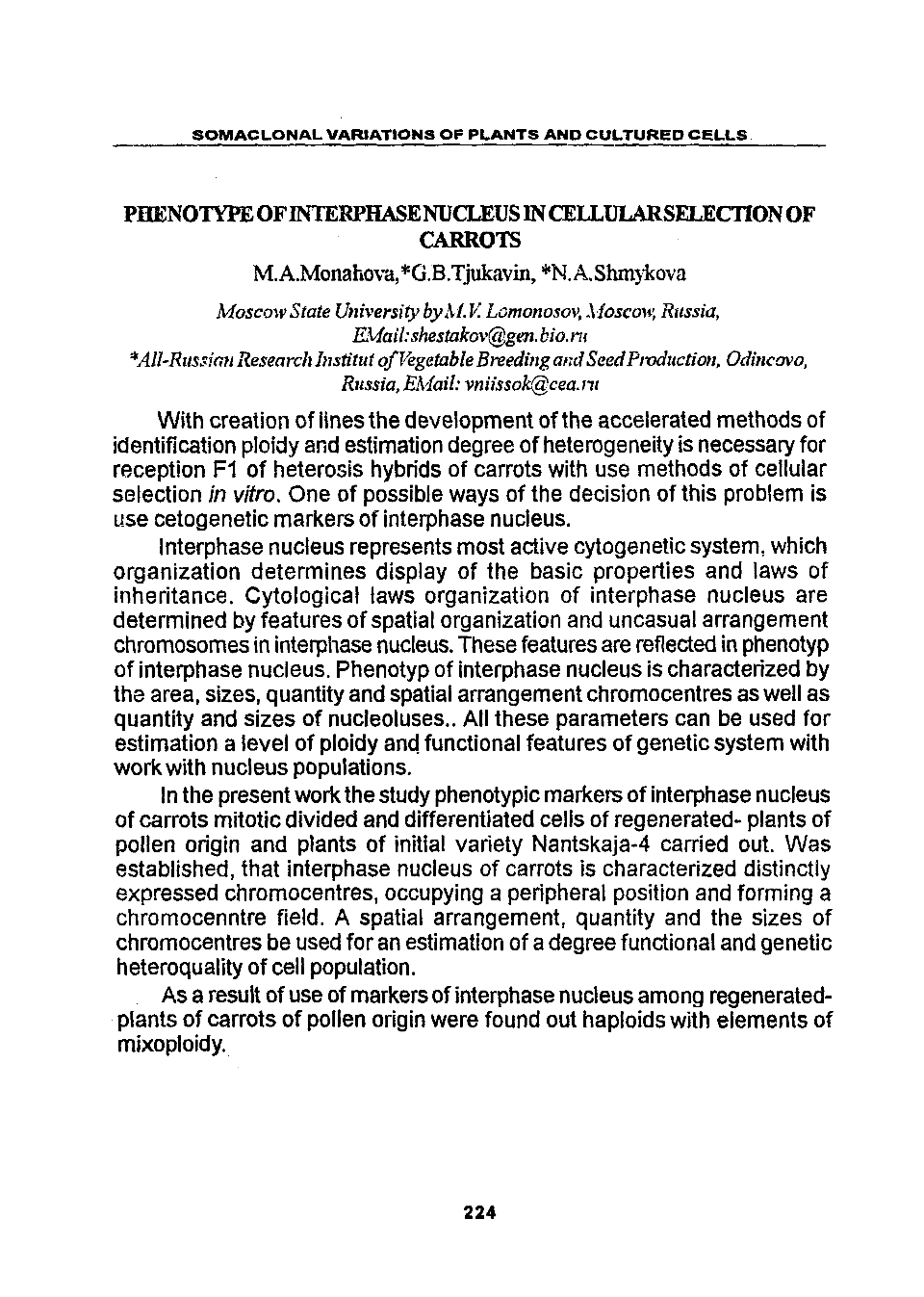

SOM A CLONA L VARIATIONS O F PLAN T S AND CULTURED C E L L S
PHENOTYPEOFINTERPHASENUCLEUSINCELLULARSELECTIONOF
CARROTS
M.A.Monahova,*G.B.Tjukavin, *N.A.Shmykova
Moscow State University bу М.V. Lomonosov, Moscow, Russia,
*All-RussianResearch Institut o fVegetableBreedingandSeedProduction, Odincovo,
Russia, EMail:
vniissok@cea.ru
W ith creation of lines the development of the accelerated methods of
identification ploidy and estimation degree of heterogeneity is necessary for
reception F1 of heterosis hybrids of carrots with use methods of cellular
selection
in vitro.
One of possible ways of the decision of this problem is
use cetogenetic markers of interphase nucleus.
Interphase nucleus represents most active cytogenetic system, which
organization determ ines display of the basic properties and laws o f
inheritance. Cytological laws organization of interphase nucleus are
determined by features of spatial organization and uncasual arrangement
chromosomes in interphase nucleus. These features are reflected in phenotyp
of interphase nucleus. Phenotyp of interphase nucleus is characterized by
the area, sizes, quantity and spatial arrangement chromocentres as well as
quantity and sizes of nucleoluses. All these parameters can be used for
estimation a level of ploidy and functional features of genetic system with
work with nucleus populations.
In the present work the study phenotypic markers of interphase nucleus
o f carrots m itotic divided and differentiated cells of regenerated- plants of
pollen origin and plants of initial variety Nantskaja-4 carried out. Was
established, that interphase nucleus of carrots is characterized distinctly
expressed chromocentres, occupying a peripheral position and forming a
chromocenntre field. A spatial arrangement, quantity and the sizes of
chromocentres be used for an estimation of a degree functional and genetic
heteroquality o f cell population.
A s a result of use of markers of interphase nucleus among regenerated-
plants o f carrots of pollen origin were found out haploids with elements of
mixoploidy.
224
Научная электронная библиотека ЦНСХБ









